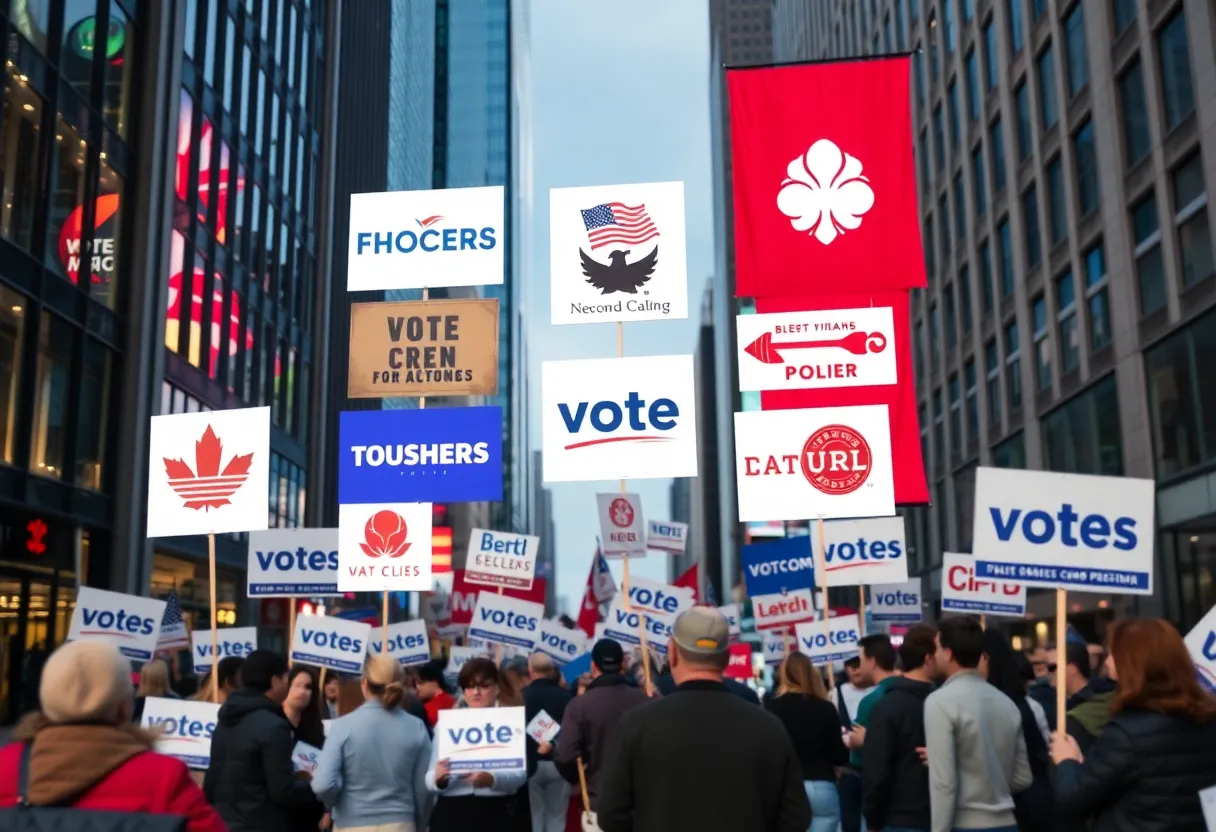

Brands find creative ways to connect with consumers in the election season.
Article Sponsored by:
Real Internet Sales is a digital marketing agency located in Columbia, South Carolina. We specialize in website design and development, SEO, social media management, online advertising, AI integration, and workflow automation. Our services also include affiliate marketing and digital strategy.
Real Internet Sales also offer specialized programming for real estate firms, using IDX and RETS feeds to automatically populate MLS properties on their websites for improved property listings and sales. We also work with clients in the restaurant, tourism, and e-commerce industries to enhance their digital presence and streamline operations.
As the days inch closer to the much-anticipated elections on November 5, brands operating out of the bustling city of New York are finding themselves at a crossroads. With emotions running high, many consumer brands are diving deep into the murky waters of political discourse, aiming to forge emotional connections with their audiences while trying to avoid potential backlash.
The stakes are high, and brands are navigating a slippery slope when it comes to taking political stances. A revealing GWI survey found that nearly 22% of U.S. consumers reported stopping purchases from brands due to the company’s political stance over just a three-month span during the late summer and early fall. Meanwhile, around 18% unfollowed a brand or influencer on social media because of expressed political opinions. It’s no surprise, then, that a whopping 82% of marketers are feeling cautious about their approach during this heated political landscape.
In light of this challenging environment, some brands have adopted imaginative ways to connect with consumers amid the electoral stress. For instance, Stonyfield, a beloved organic yogurt maker, has launched the “Toxic Free Election Challenge.” This creative campaign encourages individuals to unplug from social media completely leading up to the elections for a chance to win $1,000. Kristina Drociak, the director of public relations and digital strategy for Stonyfield, explained that the brand sees this year as an opportunity to promote a message of positivity by encouraging customers to escape the “toxicity” of online platforms.
The campaign has hit a nerve, garnering 2.1 million participants willing to log off. It’s a constructive shift designed to counteract the anxiety many feel at present.
As brands like Stonyfield push for positive engagement, understanding consumer preferences is paramount. Many Americans are steering clear of political content, with a former GWI survey showing that one-third prefer to avoid it due to feelings of overwhelm, conflict, or general emotional distress. In fact, 49% of respondents who cut back on social media cited political discussions as a key factor.
This withdrawal from online political chatter has significant consequences for brand engagement. The data indicates that consumers who have limited their social media have, in the past, made purchases after seeing product promotions through platforms like Facebook (36%), YouTube (34%), and Instagram (27%). Therefore, brands need to tread carefully, as political messaging that misses the mark can directly impact awareness and buying intent.
Some brands are choosing to sidestep overt political commentary while still engaging effectively with consumers. One such brand, Red Lobster, recently unveiled the “Cheddar Bay 2024” campaign. This initiative aims to unite diners over a mutual love of food, regardless of political affiliation. It’s a delightful, light-hearted approach that encourages a community vibe while offering customers a chance to win free meals for four years—the duration of a presidential term.
This tongue-in-cheek strategy is complemented by humorous marketing spots that playfully parody traditional political ads, which helps to keep the mood light amidst a tense atmosphere.
Another brand looking to ease voter anxiety is Aloft Hotels, which has created a cute campaign featuring adorable dogs providing meditation sessions. Their 47-minute YouTube video offers a moment of calm for those feeling overwhelmed by election noise. Additionally, they are organizing “Not Watch Pawties” where guests can cuddle with shelter dogs on election day.
It’s worth noting that while brands strive to connect with their audience positively, the potential to land in hot water is ever-present. The landscape remains complex due to the potential mishaps associated with digital marketing and AI technologies that can be misused.
Ultimately, as we move closer to November, it’s vital for brands to remain aware of their audiences’ sentiments. Aligning strategies with the values and preferences of consumers, especially across different age groups, will be essential to navigating these election-year waters wisely.
The countdown is on as brands continue to find creative paths through a politically charged atmosphere, forging connections, offering comfort, and trying to ensure their voices resonate positively with their audience.

Concrete Strength • Metal Resilience • Connecting Futures
Phone: (203) 777-0751
Email: admin@nscclips.com
News Summary Myrtle Beach is currently grappling with severe wildfires that have led to a…
News Summary A heartbreaking murder-suicide in North Charleston has left the community in shock. Darius…
News Summary Over 170 wildfires are spreading across North and South Carolina, particularly affecting Myrtle…
News Summary A devastating two-vehicle collision in Darlington County on Friday evening claimed the lives…
News Summary In a thrilling Sweet 16 clash, the South Carolina Gamecocks narrowly defeated the…
News Summary Homeowners in Charleston are left stranded after Orange Elephant Roofing vanished after collecting…